Hi, what do you want to do?
Other
Great Schools: Glossary
This is a PDF printable activity for grades 1-3 to teach students how to use a glossary to answer questions.
Read Works
Read Works: Grade 2: Four Lesson Unit: Vocabulary in Context
[Free Registration/Login Required] A series of four lesson plans designed to develop students' vocabulary skills including understanding prefixes, using context clues, and using a glossary and a dictionary. Lessons are based on the books...
Better Lesson
Better Lesson: L.3.4d: Use Glossaries or Dictionaries to Determine Meaning
Links to 2 lessons and activities that build student skills in standard L.3.4d: Use glossaries or beginning dictionaries, both print and digital, to determine or clarify the precise meaning of key words and phrases.
BBC
Bbc: Skillswise: English: Reading: Dictionaries and Indexes Quiz: Level One [Pdf]
Quiz testing basic alphabetization and dictionary skills required for real-world application. Three levels of difficulty with answers provided.
ClassFlow
Class Flow: Dictionary Use
[Free Registration/Login Required] This resource introduces students to dictionaries. It covers what a dictionary is used for, what types of information you will find in a dictionary, guide words and their purpose, and how to use a...
EL Education
El Education: A Park Grows in Portland
This field guide was a cross curricular project created by 7th grade students in Portland, Maine. Students engaged in multiple fieldwork visits to the Deering Park (across the street), during which they observed trees, recording with...
Learning Farm
Learning Farm: Common Core Standards Dictionaries and Glossaries
View a lesson on using dictionaries and glossaries to determine the meaning of words. Test your skills using Test Mode or Game Mode.
Florida Center for Reading Research
Florida Center for Reading Research: Exp. Text Structure: Text Feature Find
A lesson plan in which students look through a book to find various text features including: a table of contents, sequence and format, charts/graphs/maps, diagrams/graphics/illustrations, print variations, an index, and a glossary....
Read Works
Read Works: Vocabulary in Context 2nd Grade Unit: Dictionary
[Free Registration/Login Required] This website provides a activity in which learners learn to use a dictionary to determine the meanings of unfamiliar words. The activity utilizes the book The Mitten by Jan Brett and includes directions...
Discovery Education
Discovery Education: Curriculum Center: Science
The Discovery Channel provides numerous topics that are the most popular science topics taught in upper elementary and middle school. Content is organized by topics (Bacteria, Oceans, Solar System, etc.); all topics include quick facts,...
ClassFlow
Class Flow: Dictionary
[Free Registration/Login Required] Students will recognize the functions of dictionaries and the types of information available in dictionaries used in schools. They will learn the differences between dictionaries and thesauruses....
TES Global
Blendspace: Text Features
A nine-part learning module with links images and videos for use while learning about nonfiction text features.
Scholastic
Scholastic: Teaching With Nonfiction: Teach Text Features
A brief lesson plan, this site offers an example of non-fiction text and a graphic organizer to help orient students to the features they need to use when reading for information.
Other
Kids Wordsmyth: Free Online Dictionary
This is an interactive dictionary for kids. Students click on one of the 10 topics and find a list of related keywords; click on a keyword for its definition.
Huntington Library
Huntington Library: Garden Lesson Plans: Discovering Plants: Vocabulary [Pdf]
A one-page glossary of words that might be used by young students when studying plants.
Huntington Library
Huntington Library: Garden Lesson Plans: Japanese Garden Vocabulary [Pdf]
A one-page glossary of vocabulary that might be used by students when discussing a Japanese garden.





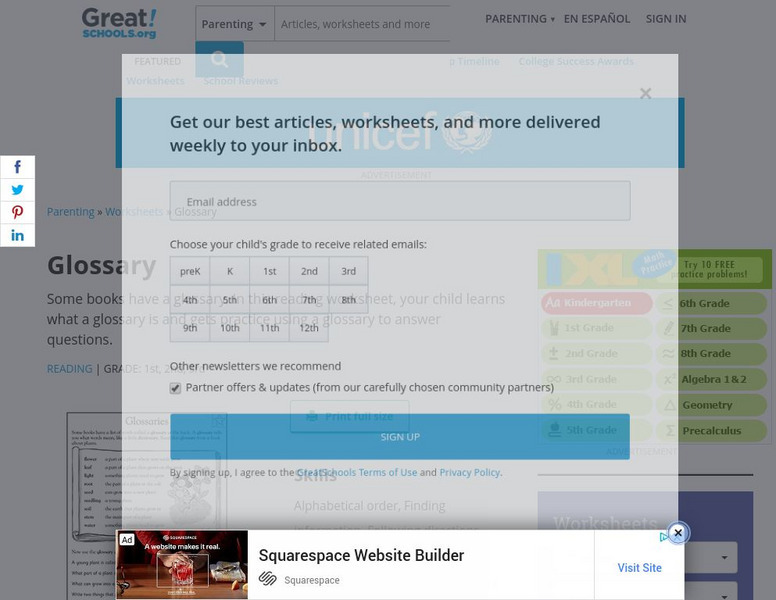
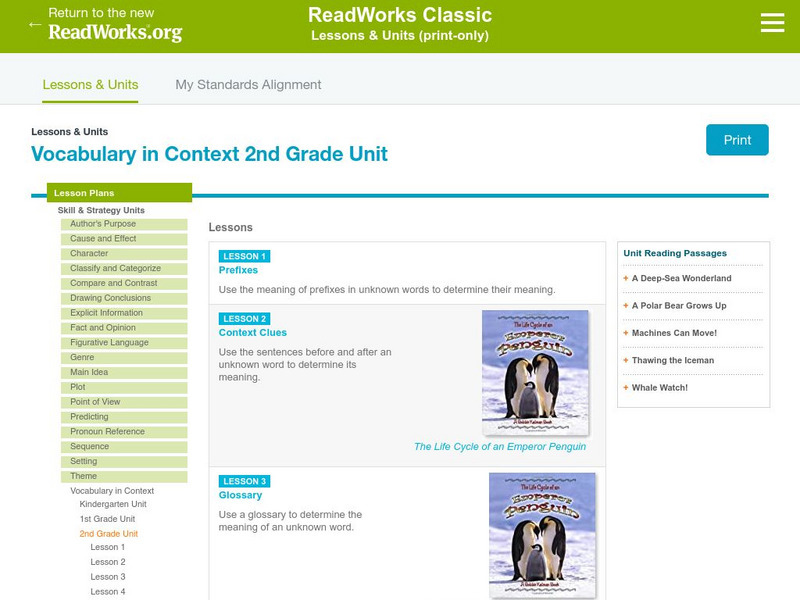
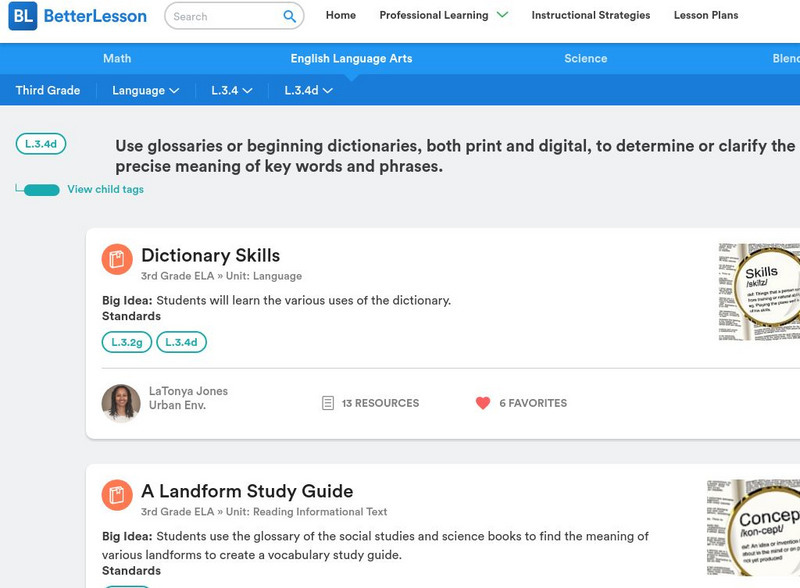
![Bbc: Skillswise: English: Reading: Dictionaries and Indexes Quiz: Level One [Pdf] Unknown Type Bbc: Skillswise: English: Reading: Dictionaries and Indexes Quiz: Level One [Pdf] Unknown Type](http://lessonplanet.com/content/resources/thumbnails/411269/large/bwluav9tywdpy2symdiwmduymc0ymtm2my04ehi2ajquanbn.jpg?1589993559)


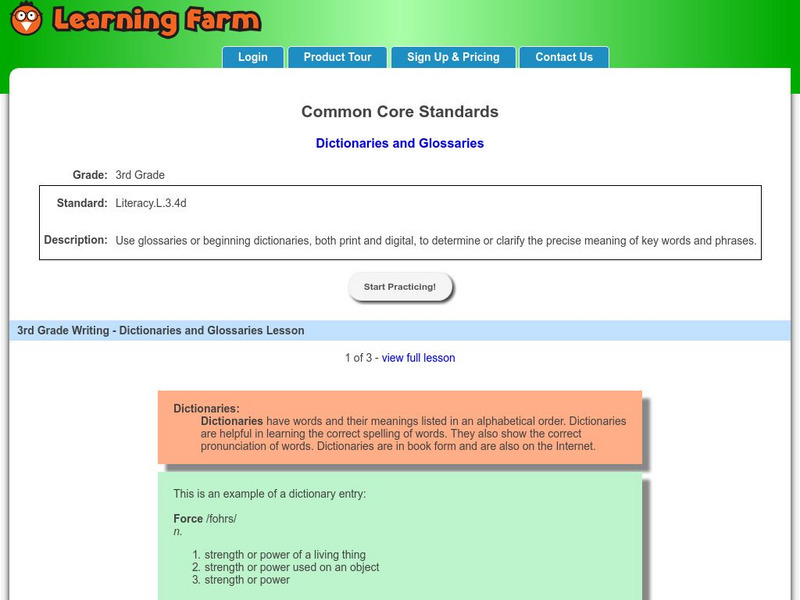
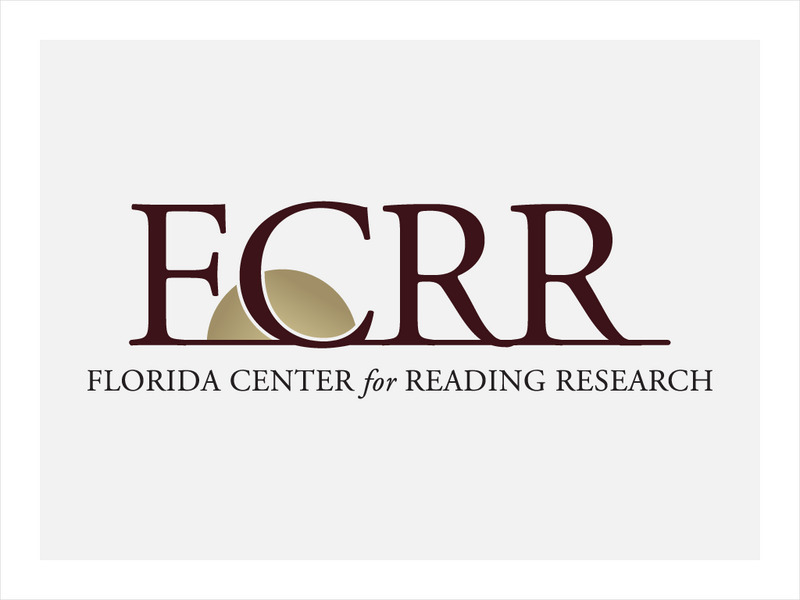
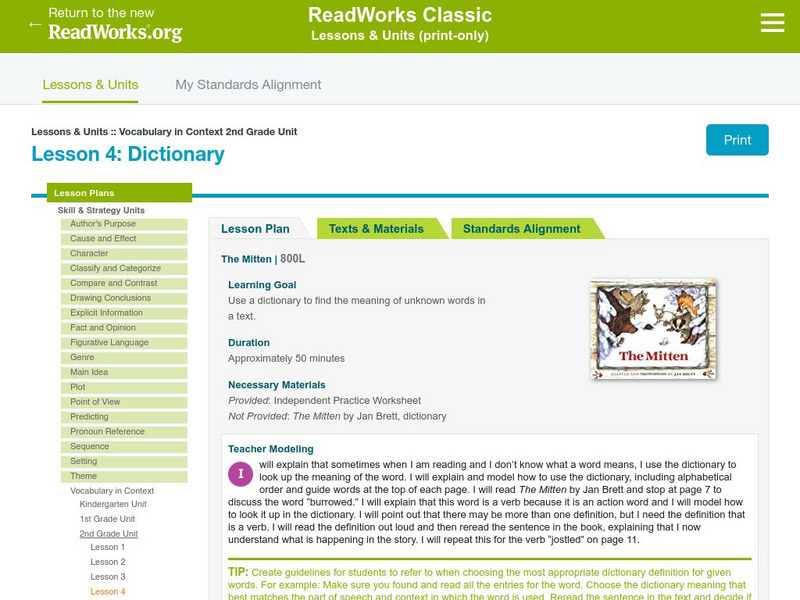


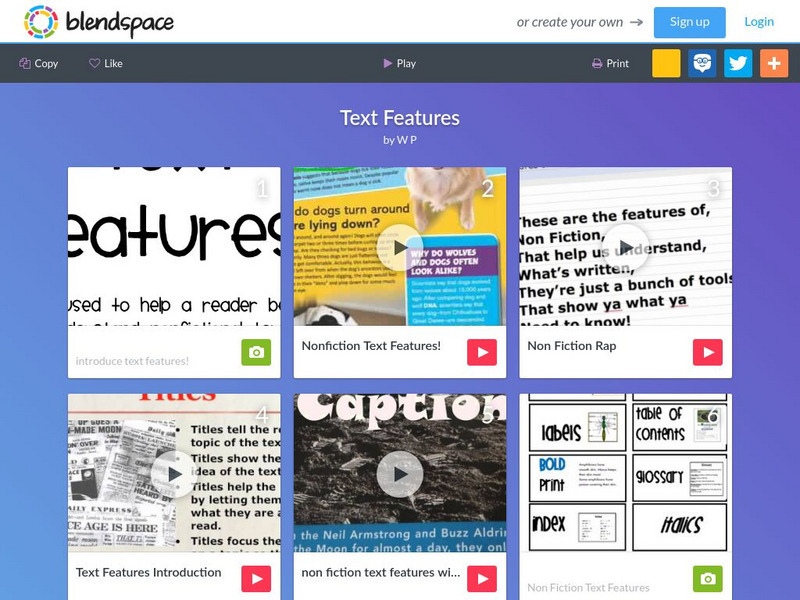


![Huntington Library: Garden Lesson Plans: Discovering Plants: Vocabulary [Pdf] Handout Huntington Library: Garden Lesson Plans: Discovering Plants: Vocabulary [Pdf] Handout](https://static.lp.lexp.cloud/images/attachment_defaults/resource/large/FPO-knovation.png)